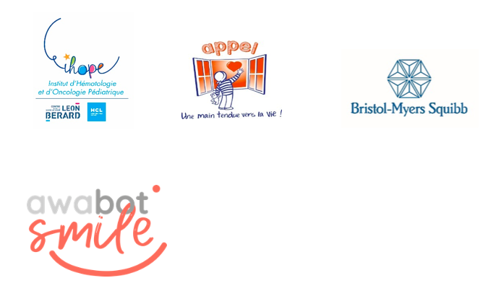Joining forces to improve the quality of life for children living with cancer (Guest blog)
The VIK-e Program
Study Results and Next Steps
Conclusion:
Even though 80% of children affected by cancer are alive after 5 years, there is still a long way ahead in fighting the disease, its long-term aftereffects and to improve the daily life of young patients.
In parallel to medical care, improving patient experience also relies on a holistic approach taking into account overall needs and improvement of quality of life. Maintaining the link with family, friends and school life is essential to children and AYAs undergoing long and isolated treatment.
Such is the ambition of the VIK-e program, resulting from a collaborative and coordinated approach led by stakeholders from the health sector committed to the fight against pediatric cancers.
Quotes from stakeholders:
Léon Bérard Center:
“As a cancer center with a triple mission comprising care, research and teaching, innovation is in our DNA. Projects such as VIK-e combining innovative technology and the human aspect of our care can only gain support from all of us, healthcare professionals, patients and closed ones, but also from our industry and association partners. We are all proud of this multidisciplinary success” notes Professor Jean-Yves Blay, Director of the Léon Bérard Center.
“This is an incredible project which we have assessed over 2 years, with 24 young patients aged 10 to 25, with very positive results. It was a first in a hospital context, hence we wished to identify potential pitfalls and check whether this concept was truly beneficial to patients and their families. These results led us to continue the project and even to set it up in other French pediatric care centers or for adults hospitalized over long periods and with young children.” states Dr. Perrine Marec-Bérard, administrator of the Lyon Hematology and Pediatric Oncology Institute, and pediatric oncologist and project co-founder.
Medical staff:
“Regarding the medical staff: there is true importance in familiarizing oneself with the environment of the patient and his/her enlarged family in order to deepen and diversify the care relationship.
This demands particular attention to the issue of health data sharing and non-verbal relations with parents, made more difficult in this virtual presence context”
Parents:
“We wish to sincerely thank you for allowing us to go through this experience with the robot. Whether for our our child or the family, it has been exceptional support and precious help. We are conscious of how lucky we are.”
“For APPEL, there was ‘before’ and ‘after’ VIK-e. For decades we have supported children isolated from the external world, sometimes for months. Giving them the possibility of going out virtually to re-engage with their environment is a true perk.
A child’s disease has an impact on the entire family. The hospitalized child and his/her brothers and sisters often have a difficult time coping with the sudden and violent cutoff imposed by the protected environment. The telepresence Robot allows brothers and sisters to maintain close ties and to de-dramatize the physical separation. It also allows the ill child to go to class as a normal pupil again.
“At Bristol-Myers Squibb, we are convinced of the importance to approach disease in a holistic fashion, looking to bring all stakeholders around the table. Our involvement is based on three interlinked pillars: ‘curing’, ‘caring’ and ‘mobilizing’. (quote from the Sept. 2016 BMS press kit)
Awabot
“The VIK-e program is near and dear to our heart. It is the outcome of a true mission: breaking the isolation of children and adults thanks to mobile telepresence and thereby using technology as a means to social inclusion and solidarity.”
Bristol-Myers Squibb is a global biopharmaceutical company whose mission is to discover, develop and deliver innovative medicines that help patients prevail over serious diseases. For more information about Bristol-Myers Squibb, visit us at BMS.com or follow us on LinkedIn, Twitter, YouTube, Facebook and Instagram. In France, you can follow us on BMS.com/fr, YouTube and Twitter